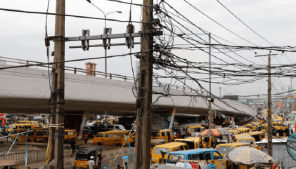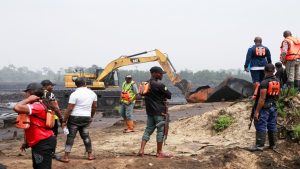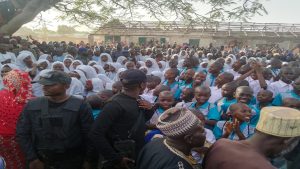Muhammad Suleiman thought it was safe to go home after the army drove Islamist insurgents from his town in north eastern Nigeria three years ago.
In December, the militants struck again. Suleiman fled in to the bush, leaving his voter card behind with most of his other belongings.
The 28-year-old carpenter now fears he will not be able to take part in Nigeria’s presidential election on Feb. 16.
Though authorities say they will set up polling booths in the camp where Suleiman has taken shelter in the city of Maiduguri, in the state of Borno, only those with voter cards will be allowed to cast ballots.
“I want to vote,” he said. “We have to live here, so hopefully we can vote here.”
Insecurity is rampant across Nigeria, Africa’s most populous nation with 190 million people and its largest oil producer.
In the northeast, a surge in attacks by Boko Haram and the Islamist insurgency’s offshoot, Islamic State West African Province, is throwing election plans into chaos. Tens of thousands of people have fled their homes since December in a region already sheltering 1.8 million displaced people, according to United Nations figures.
In Nigeria’s central states, clashes between farmers and nomadic herders over dwindling arable land have killed thousands of people and displaced tens of thousands more.
Thousands have also fled in the northwest, rendering swathes of the region inaccessible even to the military.
The bloodshed is a challenge for President Muhammadu Buhari as he seeks a second successive four-year term. Buhari, who was also Nigeria’s military ruler for 20 months in the 1980s, was elected in 2015 partly on a promise to restore security.
“Our politicians — we voted for them, we brought them into power. But once they’re in power, they don’t take care of us,” said Bulama Kyari, a community leader who fled an attack on the north eastern village of Kekeno in December.
“Before, I had confidence in Buhari and voted for his party, but now I don’t support any of them.”
The northeast is a traditional support base for Buhari, who is now 76, but violence is making it more difficult for his All Progressives Congress party to turn out the vote this year.
“I would vote for President Buhari,” Suleiman said. “But we left our voter’s cards.”
Buhari’s main rival, businessman and former vice president Atiku Abubakar, has criticised his security record and said in his manifesto that he would use diplomacy, intelligence and border controls to tackle the insurgents.






